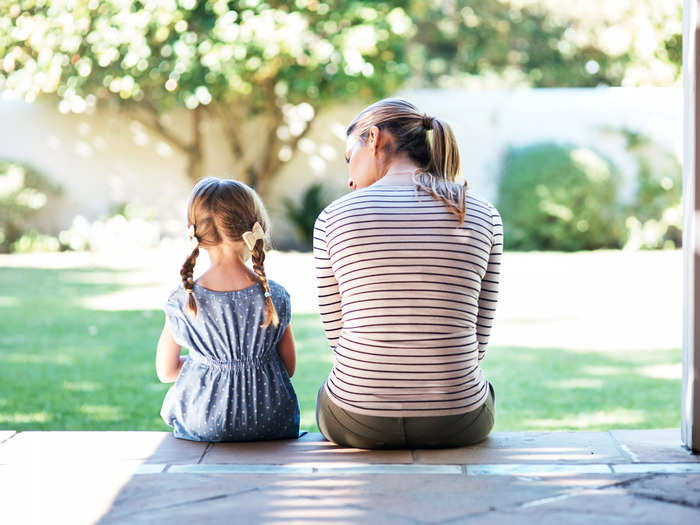Parents are cracking eggs on their toddlers' heads and filming their upset reactions as part of a new trend that's gone viral on TikTok in recent weeks.
The clips have ignited a wave of anger from viewers who have expressed concern for the safety and wellbeing of the children involved. Experts have also started weighing in, saying that participating in the trend can create a bad dynamic between parents and children, and that parents may not realize how damaging it can be.
Now, some creators are trying to turn the trend on its head — literally — by cracking eggs on their own heads. They're demonstrating alternative ways to do the challenge, and some are also extending advice to other parents about how to participate in viral trends without raising ethical concerns about their impact on children.
Here's how the egg-cracking format quickly developed into a huge craze on the app, and eventually boiled over into an ugly frenzy of controversy and disagreements between online users.
Experts told Insider the trend can create a bad dynamic between parents and children.
The behavior displayed in these trends can create a bad dynamic between parents and children. shapecharge / Getty Images
Dr. Jillian Roberts, a child psychologist and professor at the University of Victoria in British Columbia, Canada, told Insider that she thinks the trend is "completely inappropriate" because it encourages people to use someone else's distress to fuel their own amusement.
She said that behavior like this creates a "terrible dynamic" between the parent and child, in which the child is being manipulated to make others laugh.
"A little child has no agency. They have no ability to say 'No,' or 'I don't like that.' They're completely powerless in the arms of their parents," she said.
Roberts also said that unpredictable behavior from a parent can damage the bond between the parent and child, and can prevent the child from developing a secure attachment style, which can impact their future relationships.
"Clearly the situation is feeding into the parent in some way, whether it's the parent's need for likes or shares or views, or the parent's need to have attention on social media," said Roberts. "I think when parents start to position their own wants and needs ahead of the very real developmental needs of their child, it creates a kind of power imbalance. If you play dynamic out over time, it is going to create a relationship fraught with problems."
Dr. Laura Kauffman, a licensed psychologist based in California, told Insider that she feels that these surprise humiliations are more "problematic" when done to children than adults because children are more vulnerable.
She added that parents should be mindful when making decisions about participating in such trends with their children and uploading the footage to the internet. "It may not be something that that child will want out in the universe when they get older," she said.

